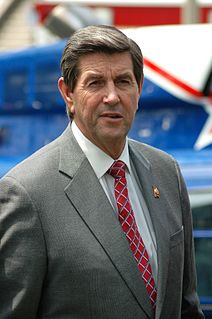A Quote by Buzz Aldrin
Knowledge of the past and an optimistic view of the present give you great opportunities.
Quote Topics
Related Quotes
Live in the present. The past is gone; the future is unknown -- but the present is real, and your opportunities are now. You must see these opportunities; they must be real for you. The catch is that they can't seem real if your mind is buried in past failures, if you keep reliving old mistakes, old guilts, old tragedies. Fight your way above the many inevitable Traumatizations of your ego, escape damnation by the past, and look to the opportunities of the present. I don't mean some vague moment in the present -- next week or next month, perhaps. I mean today, this minute.
The only thing we can control is what we do in the present. The more we replay yesterday, the further we get from today's opportunities. And the further away we move from opportunities, the tougher the road is to get back. Opportunities never look as good coming as they do going, and they wait for no one. We need to be highly attentive to spot them. And we must be focused on our present capabilities, not past regrets.
The diagnosis that poverty, lack of education, or lack of opportunities have much to do with terrorism requires a fundamentally optimistic view of human nature. This diagnosis leads to the prognosis that all we need to do to solve the terrorism problem is to create societies that are less poor, better educated and have more opportunities.
Surely knowledge of the natural world, knowledge of the human condition, knowledge of the nature and dynamics of society, knowledge of the past so that one may use it in experiencing the present and aspiring to the future--all of these, it would seem reasonable to suppose, are essential to an educated man. To these must be added another--knowledge of the products of our artistic heritage that mark the history of our esthetic wonder and delight.
We learn in the past, but we are not the result of that. We suffered in the past, loved in the past, cried and laughed in the past, but that's of no use to the present. The present has its challenges, its good and bad side. We can neither blame nor be grateful to the past for what is happening now. Each new experience of love has nothing whatsoever to do with past experiences. It's always new.
But the past does not exist independently from the present. Indeed, the past is only past because there is a present, just as I can point to something over there only because I am here. But nothing is inherently over there or here. In that sense, the past has no content. The past - or more accurately, pastness - is a position. Thus, in no way can we identify the past as past

































